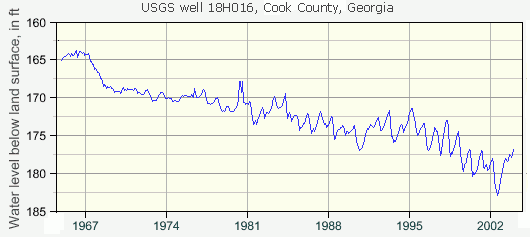There are numerous measurement systems available for measuring groundwater levels (head / stage). What period of time should measurements be collected in order to draw solid conclusions about the average groundwater level, min/ max, trends, etc?
I would reckon at least one year to take account for seasonal effects, although longer would be preferable.
Long measurement periods (several years) are often unwanted, due to the need for fast results. So the optimum between research duration and solid conclusions lies somewhere in between I presume.
EDIT: There is a factory which is investigating the possible use of groundwater for their industrial process. Enviromental law dictates that the effects of the substraction on the long term groundwaterlevels have to be investigated. The first question then becomes: what is the current long term variability in groundwaterlevel? Only then we can continue with answering what the effects of the substraction will be.
